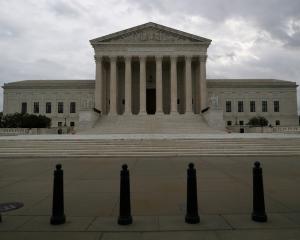It is easy to forget that some things were never memories.
I have two known false memories from my tender youth.
The first is mistagen. I've seen a photo of me playing, age 3; heard my parents tell the story so many times while I rolled my eyes at parties.
I feel like I remember standing in the backyard saying ''Daddy, let's play mistagen'' when I wanted to play catch. I mean, I was there.
I was the one who kept dropping the ball. Mistagen. But I know on some level I'm only confabulating a photo and parental nostalgia.
Fast-forward to the cross-country course, age 15. I told my games teacher where to stick it, good and proper, when she caught me smoking instead of out on the run.
Not the smartest move, strips torn off me big style. And she gave me that look next time in games. You know, the really serious teacher look.
So I avoided her for weeks and weeks after. Until she cornered me, asked what was going on. Turned out I'd dreamed the whole thing: well, the getting busted and shouting bit, anyway. The sloping off to smoke was real enough, most weeks.
False memory apparently works best this way, fleshing out the reality with suggestions and corroboration.
In the early '90s, a researcher in the US, Elizabeth Loftus, undertook studies showing 25% of participants could be made to believe in false implanted memories.
She asked them to listen to, repeat and detail four incidents from their childhood, once of which was a confabulation about being left in a shopping mall alone.
To make it seem more realistic, Loftus made sure to use plausible people and settings for each scenario, based on true information given by family members.
Even when they were told that one of the scenarios was false, some of the participants did not identify being lost in the shopping mall as a constructed memory.
Artist A. R. Hopwood, in the UK, has dedicated a website (www.falsememoryarchive.com) to the recording of false memories. In recent years he's also been working with Dr Kimberley Wade, of the University of Warwick, to look at who
can be persuaded to remember a hot-air balloon ride they never really took as a child, and how. Fascinating. As I watched the grainy, bird's-eye video pics, I felt like I was there. The immediacy of media making it real, though not true.
Dreams, family stories and suggestive scientific meddling aside, what could it be that prompts our revisions of memories?
One factor is this: new experiences and perspectives help us either revise or reaffirm what we already know. Why wouldn't we make new versions as our selves change and grow?
Of course there are definite dark aspects to memory elasticity. Loftus' research has been used in discussions and testimonies about repressed memories of child abuse, with some vilifying her for anti-ethical approaches.
She caused more controversy when she showed she could plant false memories that people hated strawberry ice cream in their youth, the implications of that one being deeper than a family-sized tub.
The Innocence Project in the US (and recently relaunched in New Zealand at the University of Otago) reveals some scary stats.
Of the 312 US cases that have been overturned using DNA evidence since 1989, an estimated 75% of convictions were originally based on witness identification. Or misidentification as it turns out.
Not, as far as we know, malicious misidentification, just a very bleak reminder that our memories can lie.
Especially, perhaps, under stressful circumstances. Trauma might heighten the senses and yet Loftus also shows how leading questions impact on memory.
''Did you see the man's gun?'' implies he had one, regardless of what the questioner intends. Whether policeman, therapist or friend, asking for details from the gist and the haze can help shape and firm those memories.
In one notable case, five witnesses falsely identified one man later exonerated by DNA evidence.
Did they confabulate a collective memory there? I'm sure that happens all the time in less crucial circumstances, too.
Family memories: shared nostalgia, constructed around the dinner table. The ball thrown, the ball dropped. Mistagen.












